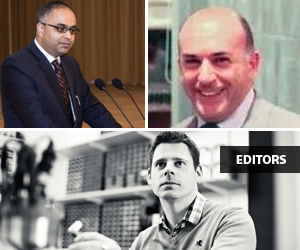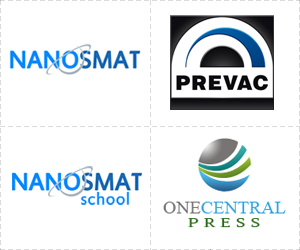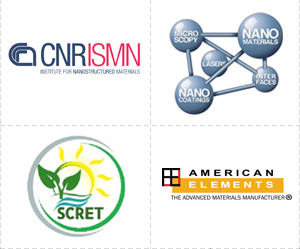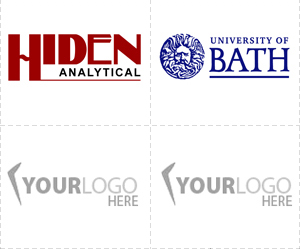An Interview with Professor Ali Khademhosseini
You have an enviable profile in the important field of nanomedicine, what prompted you to focus on this field?
The use of nanotechnology in medicine is currently at its early stage, but it is expected to have a revolutionary impact on health care as it is rapidly evolving. The ability to design multi-functional nano-carriers has shown to have lot of advantages compared to conventional medicines, such as improved efficacy, bio-availability, dose–response, targeting ability, personalization, and safety.
You have a prolific output in research and innovation, how have you managed to maintain such momentum over many years? What is your secret?
The secret is to create a good team. A good team comprises of talented students with strong multi-disciplinary background. The next step is to give them motivation and then, train them, lead them, connect them to experts in the field, and finally make them present about their projects, the result is innovation and motivation cycle that is the engine of our lab.
What long-term impact will your research on nanoscale biomaterials have on society and treatment of cardiac and other major diseases?
We tailor our biomaterials at molecular level then engineer them at nanoscale to tune their physical and biological properties to eventually achieve desired functions. Nanoengineering of materials gives us the flexibility to design the interactions between the materials with our body. I think that nanoscale biomaterials will eventually lead to shorter treatment time, less side effects and as a result more effective treatments.
You have made a transition from chemical engineering to medicine how difficult was this transition and what is the relationship between chemical engineering in medicine? Was it helpful to have a chemical engineering background to explore tissue engineering and nanoscale devices?
What I learned as a chemical engineer was the chemical and the physical principals underlying engineering, which was more towards addressing industrial needs. Therefore, it took me some time to adjust to this new field. That is because, biological systems are way more complex in designs and functions compared to an engineering system. However, the engineering principals that I learned from chemical engineering had provided me with fundamental knowledge necessary to apply them to engineer better biological systems.
In Asia, Middle East, etc. academics are taught to focus on their degree discipline. You are either a physicist or chemist or a medic. How important is it to have a multidisciplinary background?
When you are working on a complex problem and you want to have innovative solutions, you have no choice but to be multi-disciplinary. Classical approaches that rely on people with single expertise cannot answer complex questions that we are facing in tissue engineering, today.
Tissue engineering in nature is a research field defined at the edge different sciences, which means, we have to actively work with scientists coming from different disciplines.
Is there a danger of being too dispersed when you hop from one subject to another? Is it better to focus on one narrow field and get into real depth?
When you initially start a new field of research, you need to be focused on one aspect and create enough depth. But then you can start branching and expand your research by working and collaborating with others in the field to solve a big problem.
What advice would you give to someone who has just finished a BSc degree regarding choosing a research field to enter? What factors need to be considered?
I always tell my students that they have to understand the fundamentals very well and become master in one area of research, and meanwhile, never miss the joy of reading new findings in other fields of research. Besides, I encourage them to be brave and challenge themselves by getting involved in research and work as early as possible.
In UK academics focus on either research or teaching with very few doing both well. However you have managed to have major achievements in both teaching and research, how do you balance the two so that both can run in parallel without sacrificing quality in either?
I believe that educating the next generation of scientists is equally important as making scientific breakthroughs. In addition, training students can be done while involving them in cutting edge research.
You have won many prestigious prizes for both research and innovation? What is your process for innovation? How could innovation and creativity be imparted to youngsters at an early stage? Is there a difference between being a brilliant scientist and brilliant innovator?
I try to understand how different natural systems work and how they can be used for solving major challenges facing our society. I also have tried to think outside the box to work closely with others from other disciplines. I think that some key ways to teach innovation is to make young scientists to work in teams with others from other areas in solving important problems.
Both basic and translational scientists try to make an impact by changing how people ‘think’ or how they ‘practice their profession’ through gain in knowledge. So they are similar in many ways.
What is your major research mission in life? I know it’s a premature question since you are still very young, what legacy would you like to leave for humanity when it’s all said and done?
My mission has been to make a difference in human lives. Everyday I work with the goal to develop new materials and technologies improve patient’s outcome.
Thank you for your reflections and time. It’s been very enlightening and a pleasure to talk to you






